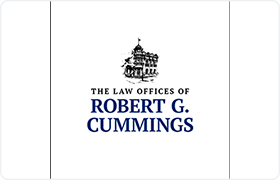 Gilroy Criminal Lawyers, California
Gilroy Criminal Lawyers, California
Sponsored Law Firm
-
 x
x

Click For More Info:
-
The Law Office of Robert G. Cummings
2000 Broadway St Redwood City, CA 94063» view mapCriminal Defense Law High Quality Aggressive Representation
The Law Offices of Robert G. Cummings is devoted to the defense of individuals and entities charged with or facing criminal prosecution.
800-965-6701
Lawyers
1-3 of 3 matches
Traffic, DUI-DWI, Criminal, Banking & Finance, Credit & Debt
Traffic, Criminal, Civil & Human Rights, Accident & Injury



 Robert Cummings Redwood City, CA
Robert Cummings Redwood City, CA AboutThe Law Office of Robert G. Cummings
AboutThe Law Office of Robert G. Cummings Practice AreasExpertise
Practice AreasExpertise